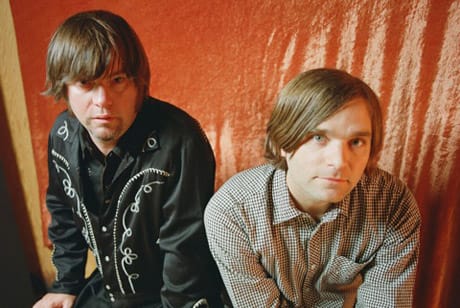As part of the first generation of adults to benefit from the internet, I often have to remind myself that there was a time a lot of mysteries in my life I could only unravel on my own. Much of that attitude was instilled through reading Kerouac as teenager. His 1957 novel, On The Road, was essentially a guide for anyone contemplating self-discovery, as it beckoned readers to follow their desires wherever they may lead, and savour every experience. While that message continues to resonate, the question is whether it's still Kerouac's words getting that message across 40 years after his death. Ever since Bob Dylan took up Kerouac's challenge and embarked on his own journey, songwriters have echoed Jack's prose. Yet Son Volt's Farrar and Death Cab For Cutie's Gibbard allow Kerouac to speak for himself. One Fast Move was made in conjunction with the film of the same name, which explores the period when Kerouac lived in northern California while working on his 1962 novel, Big Sur. His decline into advanced alcoholism was already apparent, as evidenced by the dark, at times verging on hopeless, tone of his writing. Farrar and Gibbard, no strangers to pathos, easily adapt portions of the novel and its companion poem, "Sea," into a stark 12-song suite that sonically matches the sense of alienation Kerouac felt over seemingly having nowhere left to go. Moreover, the pair perform like seasoned travellers, each knowing they can't go on alone, but barely acknowledging each other's presence out of a need for self-preservation. Gibbard's breezy vocals on opening track "California Zephyr" gives every indication that Kerouac's dream remains alive, but by the time Farrar brings things to a shuddering halt with "San Francisco," what we hear is the lament of someone who's seen too much, drank too much and loved too much. One Fast is thus an important exploration of the side of Kerouac that many choose to ignore. In some ways, it's a side that's more in tune with contemporary society, at least with those of us who are likewise wondering where to go next.
(Warner)Jay Farrar & Benjamin Gibbard
One Fast Move Or I'm Gone: Music From Kerouac's Big Sur

BY Jason SchneiderPublished Nov 23, 2009



